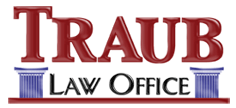The Homestead Exemption and Shielding a Personal Residence from Creditors
Upon filing for bankruptcy under either Chapter 7 or Chapter 13, a debtor can face the risk of losing some or all of his personal and real property assets to satisfy the claims of unsecured creditors. However, many states provide what is known as “the homestead exemption,” which can shield a debtor’s personal residence from being repossessed and/or sold for the benefit of creditors.
The Unlimited Homestead Exemption
A few states offer an unlimited homestead exemption, or an exemption with no dollar cap. This means that unsecured creditors in states that provide an unlimited homestead exemption cannot seek payment from a debtor’s personal residence at all, no matter what the value of the property is.
Texas provides an unlimited dollar value homestead exemption. However, the exemption is limited based on the acreage of the land in question. In Texas, unsecured creditors cannot seek payment from a debtor’s personal residence if the homestead is not more than one acre in a city or 200 acres elsewhere.
Be sure to sign up for our free monthly newsletter for real estate professionals.If you have any questions, please feel free to contact us.
